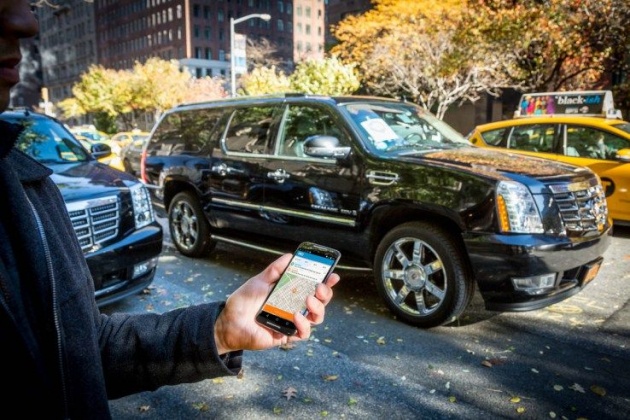
has taken the company into many categories of transportation, from simple car services for individuals through to courier deliveries. Now, a startup out of New York called Via has raised $27 million to take Uber on in one specific area: ridesharing services for people in urban areas. With a flat rate of $5 for prepaid rides (and $7 for those you order on the fly), Via hopes its iOS and Android app will also work as a viable alternative to the likes of city buses to help get people from point A to B. Indeed, CEO and co-founder Daniel Ramot likes to describe Via as a “dynamic bus.”
The plan will be to use some of the funding to expand across more of Manhattan, the only place where Via is currently available, and also to move into more new cities. The first targets are Chicago and Washington — dense places that are far away from Uber’s home ground of San Francisco.
The funding, a Series B round, is notable also because of some of the investors pitching in. Led by Israel’s Pitango Venture Capital, the round also had participation from Hearst Ventures and Russian mogul Roman Abramovich’s Ervington Investments. Previous investor 83North, formerly known as Greylock Israel, also invested, to bring the total raised by Via to date to $37 million.
Via, which was launched in September 2013, has remained relatively under the radar, growing mainly by word of mouth (and some select strategic praise) in a fairly limited range across midtown Manhattan.
Even so, working in what is essentially only a seven square-mile radius gives Via a huge opportunity — that space alone sees on average 200,000 taxi trips in a typical day. And Via has already seen some traction: to date the 500 drivers on its books have racked up 300,000 shared rides from 40,000 registered users (or, as Via likes to call them, members), and “We always wish we had more cars to handle the demand,” Ramot told me in an interview.
The idea behind Via germinated originally out of how people in Ramot’s home country of Israel share rides in shuttle vans that drop off and pick up users not directly at their doors, but in a very close vicinity to them, no more than a few minutes’ walk, which he calls “vanpooling.” In that sense, you can think of Via actually as more of a bus than a taxi competitor.
“When you look at public transit it has fixed routes and schedules,” he said. “We see that on-demand transportation in the future will be the same, just smaller and more agile.” A people-carrier in the Via network will typically hold between 5 and 8 people, with a ride rarely only being taken by a single user. “We’re positioned in a unique space between a bus and an Uber,” he said.
In the current set-up, Via works only with drivers that are licensed by local taxi associations, which should help it avoid some of the controversy that Uber has seen in markets where it also brings in unlicensed drivers to its network.
While Ramot likes to differentiate between Via and Uber, the latter, of course, coming up fast. Uber has been testing out its own carpooling offering, Uberpool, which it launched in New York in December 2014 after an initial rollout in San Francisco. But it’s also still in development mode with how this will work: it recently raised the price to $7 from $5 in San Francisco, for example, and it typically only pairs two riders going in the same direction.
The fact that Via falls into a gap between what Uber offers today and what a user can get from a city transportation network seems to be also be what is attracting the extra investment, with VCs aware of the exploding interest both in private car services, but also a growing evolution in what people expect from them as cities get denser, and we get busier.
“Today’s cities require a new approach to their transit challenges, but most solutions don’t address the very real problems of too many vehicles on the road and not enough affordable and convenient transportation options,” said Chemi Peres, who is joining the board with this round. “Via has a solution that will sharply reduce traffic while getting people to their destinations faster and more comfortably. Via has built an impressive technology infrastructure to solve the world’s transit problems, and we are proud to invest in the company and the team.”



